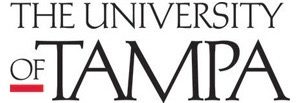
The Council for the Accreditation of Educator Preparation (CAEP) announced last week that The University of Tampa has received accreditation for its educator preparation programs.
The CAEP Teacher Preparation Standards are rigorous, nationally recognized standards that were developed to ensure excellence in educator preparation programs. Educator preparation providers seeking accreditation must pass peer review on five standards, which are based on two principles: 1) Solid evidence that the provider’s graduates are competent and caring educators, and 2) Solid evidence that the provider’s teacher-educator faculty have the capacity to create a culture of evidence and use it to maintain and enhance the quality of the professional programs they offer.
UT was granted accreditation for the maximum amount of time given — seven years.
Tony Erben, UT professor of education, said that in addition to 525 data points, UT’s Department of Education had to track and monitor all 105 national and Florida standards.
“Of all standards and indicators, we got a clean sweep of passes,” Erben said. “No areas for improvement and no stipulations.”
Colleen Beaudoin, chair of the Department of Education and lecturer in mathematics, added that “UT graduates and the students they teach will benefit from this for years to come.”
There are currently 11 accredited education preparation providers in the state of Florida, and more than 340 accredited providers nationwide.
“These institutions meet high standards so that their students receive an education that prepares them to succeed in a diverse range of classrooms after they graduate,” said CAEP President Christopher A. Koch. “Seeking CAEP Accreditation is a significant commitment on the part of an educator preparation provider.”
The Department of Education’s reputation for curricular quality and real-world results sets it apart among education programs, providing students with a respected degree that serves them throughout their careers. UT has six undergraduate teacher preparation programs:
- Bachelor of Science in Elementary Education with ESOL Endorsement and Reading Endorsement (K-6)
- Bachelor of Science in Secondary English Education with ESOL Endorsement (6-12)
- Bachelor of Science in Secondary Mathematics Education (6-12)
- Bachelor of Science in Secondary Biology Education (6-12)
- Bachelor of Science in Secondary Social Science Education (6-12)
- Bachelor of Science in Physical Education (K-12)
UT has the following graduate education programs:
- M.Ed. in Curriculum and Instruction
- 4+1 M.Ed. (combined B.S./M.Ed.)
- M.Ed. in Educational Leadership
- M.S. in Instructional Design and Technology
Learn more at ut.edu/education. The Florida Department of Education approves
UT’s education programs.
“Our students and instructors should be very proud of the work they are doing. We’ve set a very high bar for our teacher prep program, and CAEP Accreditation validates the hard work we are doing,” said Jack Geller, dean of the UT College of Social Sciences, Mathematics and Education. “Our students and their families are investing in an education program that is designated as nationally accredited for teacher preparation.”
CAEP is the sole accrediting body for educator preparation nationally recognized by the Council for Higher Education Accreditation. Accreditation is a nongovernmental activity based on peer review that serves the dual functions of assuring quality and promoting improvement. CAEP was created by the consolidation of the National Council for Accreditation of Teacher Education and the Teacher Education Accreditation Council. It is a unified accreditation system intent on raising the performance of all institutions focused on educator preparation. Approximately 720 educator preparation providers participate in the CAEP Accreditation system, including some previously accredited through former standards.
The University of Tampa is a private, comprehensive university located on 110 acres on the riverfront in downtown Tampa. Known for academic excellence, personal attention and real-world experience in its undergraduate and graduate programs, the University serves approximately 9,600 students from 50 states and 130 countries. The majority of full-time students live on campus, and about half of UT students are from Florida.
